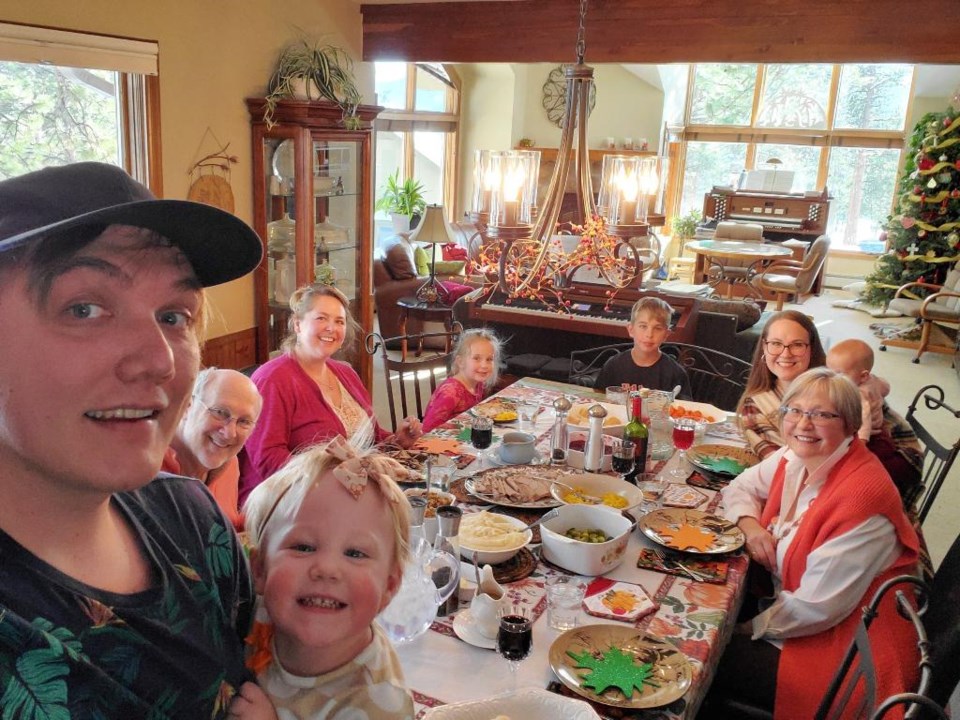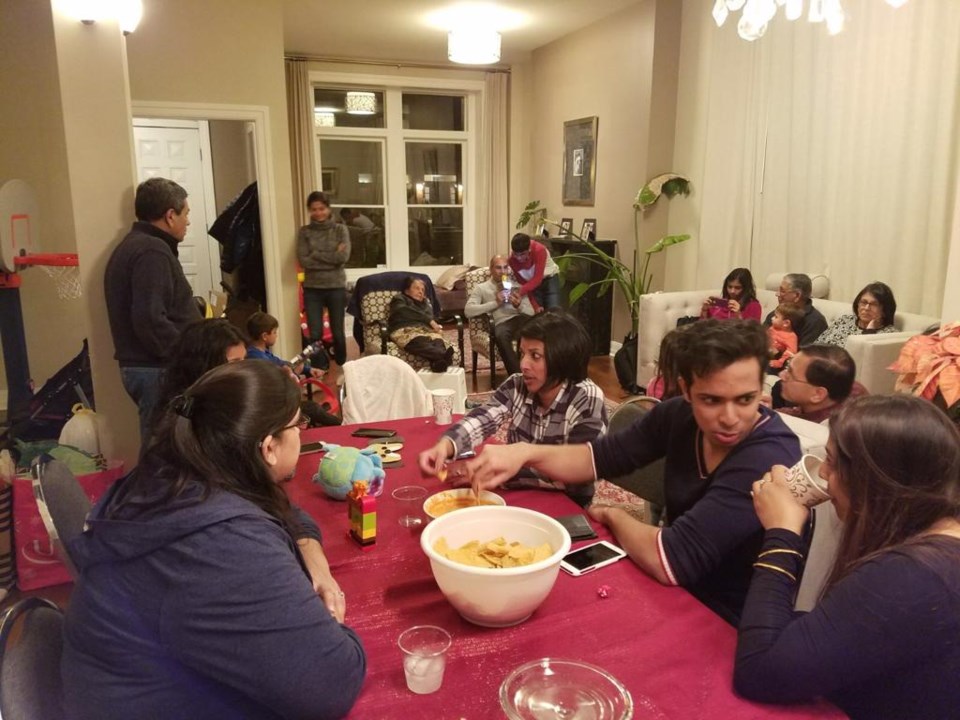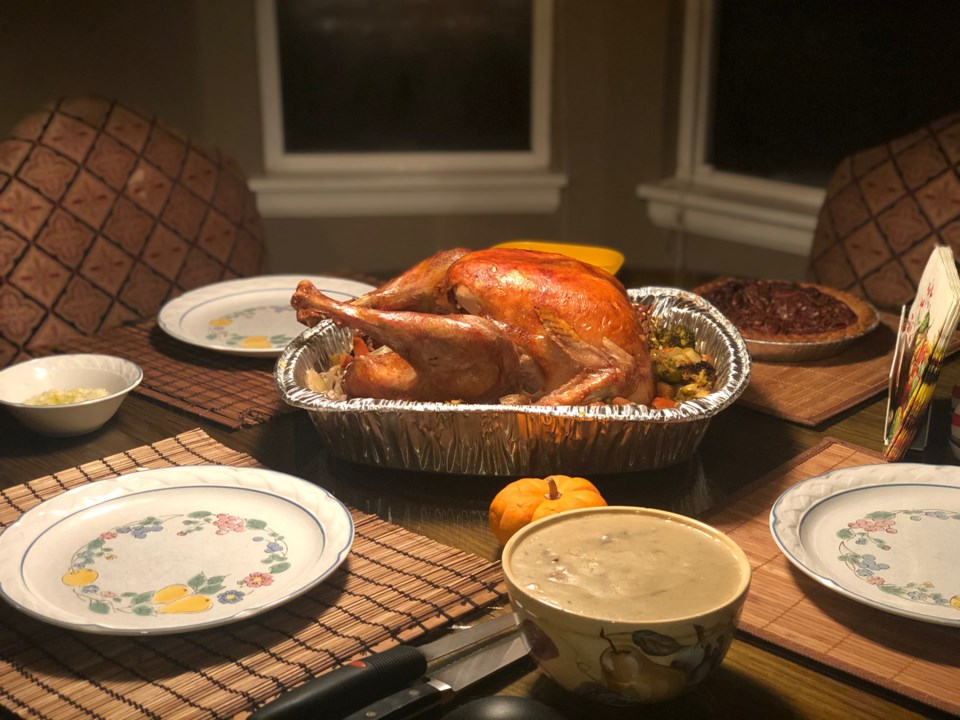Thanksgiving this year will be different for most given the restrictions brought on by rising COVID-19 cases and an increased risk of transmission. Earlier this week, the Centers for Disease Control and Prevention posted recommendations for Thanksgiving travel and activities urging individuals to consider celebrating at home with only those from their households.
Locally, restrictions were increased in response to the county moving to red status on the state’s COVID-19 dial dashboard, and public health officials joined in Gov. Jared Polis’ pleas asking people to avoid large gatherings.
For immigrants, novelty and sacrifice over the holiday season is a familiar experience, according to Manuela Sifuentes, a Boulder County cultural broker and principal at Malinalli Language Consultants.
“Immigrants know and can make this sacrifice, which is hard, but it is something that we are familiar with, because migration implies family separation,” she said, adding if anyone knows how to spend Thanksgiving only with people in their households it would be an immigrant.
It’s about acculturation, not assimilation
What also is unique about immigrant individuals and families is the ways in which they adapt the holiday based on old and new cultural traditions, said Carmen Palacios-Ramirez, community and neighborhood resources manager at the city of Longmont.
“An interesting aspect for the immigrant community is that a lot of people come to this country and don't know the true history behind this date,” she said.
Having been born in the United States but raised in the Mexican culture, Palacios-Ramirez calls herself a Chicana. For her and her family, Thanksgiving has never been a historical reason to celebrate but instead a day to remember the atrocities committed against Native Americans, to pray for those who are suffering and to give thanks for being able to gather with family and friends.
“This year will be different, but we will be thankful for that,” she said.
Palacios-Ramirez recognizes that the history and tradition of Thanksgiving is not shared across all cultural lines, and it is something that becomes evident through the food that is served.
“When you look at the dinner table, the food you see is probably that of their roots, with Swedish meatballs or lasagna to complement it,” she said, adding that her Thanksgiving Day spread includes green chile, tamales, enchiladas, ham and a turkey.
Retaining aspects of one culture while adding new elements and traditions is what is special for bicultural and immigrant families, Palacios-Ramirez said. “To me that’s the beauty of acculturation and not assimilation.”
 Tom Davis enjoying Thanksgiving at his in-law's home in Estes Park with his wife and two young daughters in 2019. (Courtesy photo)
Tom Davis enjoying Thanksgiving at his in-law's home in Estes Park with his wife and two young daughters in 2019. (Courtesy photo)It’s about feeling welcomed
Tom Davis, a Queensland, Australia, native, moved to Boulder County six years ago and has been living in Longmont for more than a year. In Australia there are not as many holidays as in the U.S., something that has been an adjustment for him.
“I grew up without any of that kind of stuff, there’s not too many holidays in Australia that are specifically so focused toward giving and things like that,” he said. “I think it's a pretty unique thing that Americans get to have over the rest of the world”
For the past few years, he has spent Thanksgiving with his wife’s family in Estes Park. While his in-laws usually serve a typical Thanksgiving spread, they have incorporated new items to cater to Davis’ palate.
“This time in Australia there’s seafood and air conditioning, it’s totally different. … My wife's family is very traditional and they like to do things by the book but once they met me, they started incorporating crab legs into the spread,” he said, adding that Thanksgiving dinner now has started to look a bit more tropical.
The holiday is intertwined with other important events in Davis’ life, given that some years ago he became a U.S. citizen around the date
“My swearing as a citizen of the United States happened very close to Thanksgiving so it has become a bit of a dual celebration of that as well,” he said. “That was also a long tough journey that took forever.”
The holiday season has thus become a reminder of the welcoming and warmth his n-laws showed him when he became a part of their family, and it is something that has enhanced the meaning of this particular day.
“My in-laws could have had the opportunity to send me packing if they wanted to and they didn't,” he said. “They took me in and they took care of me and my wife when we came here.”
 Shakeel Dalal's extended family celebrating Thanksgiving together in 2016 at his cousin's house in Chicago, Illinois. (Courtesy photo)
Shakeel Dalal's extended family celebrating Thanksgiving together in 2016 at his cousin's house in Chicago, Illinois. (Courtesy photo)It’s about family
Shakeel Dalal moved to Longmont in 2017. Born in India, he came to this country at 6 months old and has since lived in Chicago, Wisconsin, Indiana, New York and a few other U.S. cities.
While Thanksgiving has become the touchstone holiday for him and his family, it was not always so. He recalls the story of his aunt and uncle who came to this country in the mid-’70s and who, at that point, didn't know what a turkey was.
“They started the Thanksgiving tradition in the family around 1975,” he said. “Their first dinner was a Hungry Man frozen dinner just to do the thing that the Americans do. The next year they did a whole turkey for just the two of them with leftovers for a week, and then the extended family moved to the U.S.”
Since then, Thanksgiving has become the excuse to bring the family together.
“At this point, and for the past 20-25 years, it’s mandatory attendance in my family,” he said. “There is no reason to miss Thanksgiving.”
Their dinner plates on Thanksgiving Day contain the stereotypical foods, he said, however, the days surrounding this holiday often contain a variety of other plates.
“Turkey, mashed potatoes, a token salad, sweet potato casserole, cornbread rolls … it’s all part of the spread,” he said. “But we are still an Indian family, despite having grown as big as we are, so we’ll have nontraditional dishes in the subsequent days.”
This year will be an unprecedented year for the family as they will not be gathering on this holiday. With relatives in Chicago, Detroit, Indiana and New York City, coming together would be the “CDC’s worst nightmare,” he said.
However, he recognizes the significance of the day even if he will spend it away from his loved ones.
“We don't do the thing where we go around saying what we are thankful for,” he said. “... It’s the yearly touchstone that basically locks us in a room with each other for four days and allows us to stay a family.”
It’s about future generations
As a Peruvian-Canadian born in the United States, Jorge Arias has experienced first-hand the traditions of Canadian and American Thanksgivings, as well as the contrast of not celebrating the holiday in Peru.
“Because my parents are Peruvian, this was never a very important day for me. We would get together as a family and everything, but it was just one more official holiday,” he said.
In past years, Thanksgiving for him was no more than a holiday to get invited to a meal or an extra day off, but this year he will get to host a friend who could not travel to see his family because of the pandemic.
“This year we were going to spend it here without any family and were not planning on doing anything, just one more day off,” he said. “For the first time we are going to host at our home, so we are more invested in the preparation and the celebration.”
Arias and his wife have lived in Longmont for just over a year, where they are raising their two young children. Because this is the place they will call home, they want to make sure their children grow up with some semblance of Thanksgiving tradition.
“My wife and I have been thinking that because this is such an important date here, and because giving thanks is of itself important for us, we want to start making something so that my children aren’t the only ones not doing something, so they grow up excited about this,” he said.
COVID-19 has put an added strain on long-distance family relationships for him and his wife, which makes it all the more important to be appreciative and thankful.
“When things go back to normal, I don’t think we will be doing the same thing every year, repeat the same thing every year,” he said. “But it will be a day to spend with family and I will try to, no matter what we do, make sure we are giving thanks for what we have.”
It’s about being thankful
Mohamad Gharamti was born and raised in Lebanon until he left for college in Turkey, to then spend some time in the Netherlands and in Massachusetts for his graduate and postdoctoral studies. He has now settled in Boulder County and works as a scientist in the National Center for Atmospheric Research.
For him, the idea of coming together to appreciate and be thankful is not a foreign idea. As a Muslim, he said he finds much similarity between American Thanksgiving and the month of Ramadan.
“Ramadan is a time where you fast, you appreciate and are thankful for what you have, you share what you have with people in need. It sounds very similar to Thanksgiving,” he said, adding the only difference is the Muslim tradition entails a full month of meals, not just one.
Gharamti said being away from family makes engaging in tradition difficult, but it is something he and his wife want to convey to their two daughters.
“I come from the Middle East and my wife comes from Mexico, (which are) cultures that are family oriented,” he said. “This is (where) my daughters call home and where they will grow up. … When they grow up, gathering on this day as a family would be super nice.”
While Gharamti wants both he and his wife’s cultural legacy to live on, he also appreciates the opportunity to learn about and enjoy new traditions.
“I am here not only to live as a Lebannese. I will cherish my heritage and culture, but will also accept and happily celebrate American holidays,” he said. “This country is giving us an opportunity, and thanksgiving is a day to be thankful for such an opportunity.”



